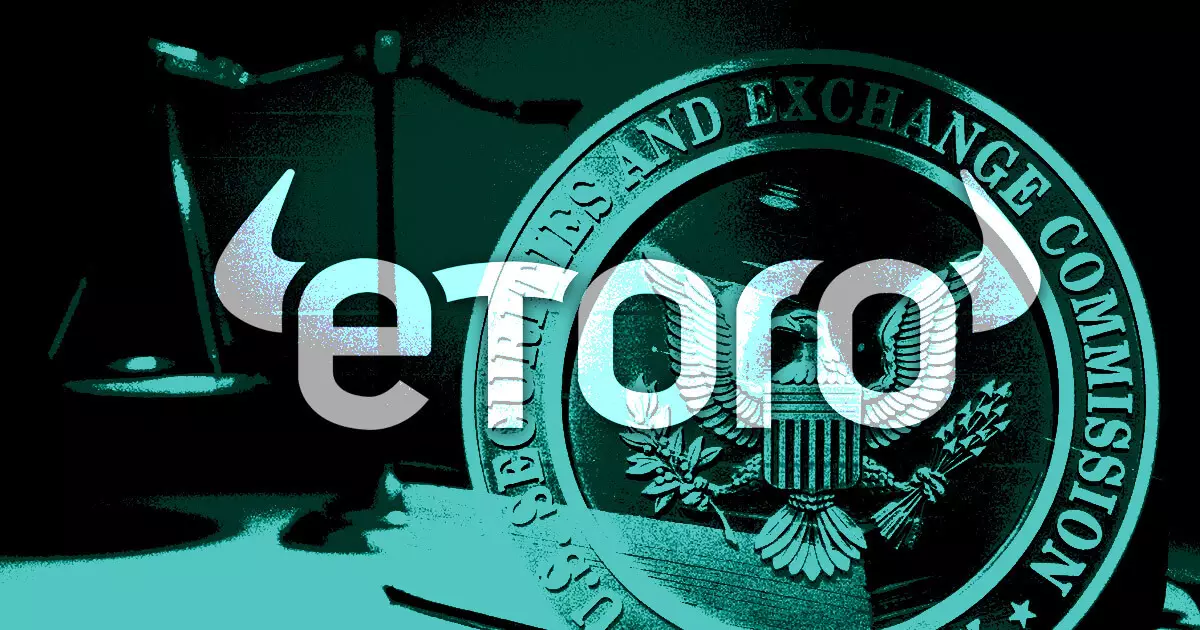In a significant development for the cryptocurrency trading sector, eToro has announced it will suspend trading for most digital assets available on its platform, a decision resulting from a settlement with the U.S. Securities and Exchange Commission (SEC). Following a thorough investigation by the SEC, it was revealed that eToro had allowed U.S. customers to engage in trading crypto assets classified as securities without adhering to mandatory registration protocols since 2020. This incident highlights the ongoing regulatory challenges that crypto platforms face in maintaining compliance in a rapidly evolving landscape.
In a statement released on September 12, the SEC disclosed that eToro had agreed to pay a $1.5 million settlement fee, reflecting a larger trend of regulatory crackdowns on the crypto industry. While eToro did not formally admit to any violations, the decision to limit its offerings to primarily Bitcoin, Bitcoin Cash, and Ethereum signals a pivot towards compliance. Gurbir S. Grewal, Director of Enforcement at the SEC, emphasized that this resolution not only fortifies investor protection but also sets a precedent for other crypto intermediaries to follow. The settlement required eToro to divest all other digital assets within a timeframe of 180 days, significantly altering the platform’s operational landscape.
eToro’s co-founder and CEO Yoni Assia expressed optimism about the settlement, framing it as an opportunity to reorient the firm’s focus on regulatory compliance and innovation within their U.S. operations. Assia’s comments underscore a broader message of commitment to working collaboratively with regulatory bodies, highlighting the importance of establishing a clear and structured regulatory framework for cryptocurrencies in the United States. He articulated a vision in which future innovations in crypto trading could flourish once a robust regulatory environment is established.
The SEC’s actions against eToro are part of a wider crackdown on several other significant crypto firms, including Binance, Kraken, and Coinbase. The regulatory agency has also signaled potential legal maneuvers against Robinhood and the NFT marketplace OpenSea. This intensified scrutiny reveals a newfound urgency within the SEC to rein in activities that may pose a risk to investors and ensure compliance with federal laws governing securities.
For the existing eToro user base, the settlement brings important changes to how they will be able to interact with cryptocurrencies on the platform. Users are given until March 11, 2025, to either close their positions in unsupported cryptocurrencies or transfer them to the eToro wallet. By March 18, 2025, any remaining positions in unsupported digital assets will be liquidated, and proceeds will automatically transfer to users’ cash balances. This transition plan serves to mitigate disruption and provide customers with choices regarding their investments.
As eToro adjusts to this pressing regulatory environment, its experience is emblematic of the broader challenges faced by cryptocurrency trading platforms in the United States. With the SEC’s increasing vigilance, companies are compelled to adopt stringent compliance measures to ensure their operations align with national securities laws. The evolving regulatory framework will likely dictate the future landscape of cryptocurrency trading, necessitating ongoing adaptation and strategic planning from stakeholders within the industry.
















Leave a Reply